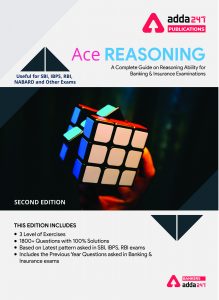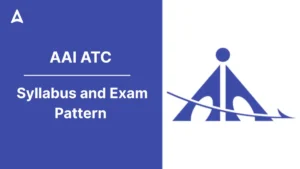Table of Contents
Directions (1-5): Study the set of numbers given below and answer the questions which follow:
924 643 867 758 568
Q1. If in each number, the first and the last digits are interchanged, then which of the following will be the third highest number?
(a) 924
(b) 643
(c) 867
(d) 758
(e) 568
Q2. If in each number, all the three digits are arranged in the descending order, then which of the following will be the third lowest number?
(a) 643
(b) 568
(c) 924
(d) 867
(e) 758
Q3.What will be the resultant, if the second digit of the lowest number is subtracted from the first digit of the largest number?
(a) 1
(b) 2
(c) 3
(d) 4
(e) 0
Q4. If in each number, the second and the first digits are interchanged, then which will be the highest number?
(a) 758
(b) 867
(c) 643
(d) 924
(e) 568
Q5. If one is subtracted from the first digit of each of the numbers and then the first and the third digits are interchanged, then which of the following will be the lowest?
(a) 643
(b) 924
(c) 758
(d) 867
(e) 568
Directions (6-10): Study the following arrangement carefully and answer the questions given below:
4 2 3 5 1 4 9 4 1 5 2 8 3 9 1 4 1 2 5 7 3 5 9 6 4 2 5 1 8 5 2 3 4
Q6. How many 3s are there in the above arrangement, each of which is immediately preceded by a digit which has a numerical value of more than five?
(a) None
(b) One
(c) Two
(d) Three
(e) More than three
Q7. How many such 1s are there in the above arrangement each of which is immediately preceded by an odd digit and immediately followed by an even digit?
(a) None
(b) One
(c) Two
(d) Three
(e) More than three
Q8. What is the sum of the digit which is 12th from the left end and 16th from the right end?
(a) 10
(b) 15
(c) 7
(d) 6
(e) 5
Q9. Which of the following is 7th to the right of the 20th from the left end of the above arrangement?
(a) 8
(b) 5
(c) 2
(d) 4
(e) 1
Q10. If all the odd digits are deleted (dropped) from the above arrangements, then which of the following will be ninth from the right end of the arrangement?
(a) None
(b) 8
(c) 6
(d) 4
(e) 2
Directions (11-15): These questions are based on the following six numbers.
312 876 156 275 734 954
Q11. If we add 2 to the second digit of each number and subtract 1 from the first digit of each number, then which of the given will become the lowest number?
(a) 312
(b) 876
(c) 156
(d) 275
(e) None of these
Q12. If all the digits in each of the numbers are written in ascending order within the number, then which of the given number will become the second highest?
(a) 312
(b) 954
(c) 156
(d) 275
(e) None of these
Q13. If the first two digits of each number are interchanged, then which of the following numbers will become the highest number?
(a) 721
(b) 876
(c) 937
(d) 387
(e) 275
Q14. In each number, if we subtracted 1 in first digit and added 1 in last digit, then which among these number will be 2nd lowest number?
(a) 734
(b) 876
(c) 954
(d) 275
(e) None of these
Q15.If we replace all the odd digits in each number with zero, then which of the following number will become the lowest?
(a) 312
(b) 876
(c) 156
(d) 275
(e) 734
Practice More Questions of Reasoning for Competitive Exams:
Solutions
S1. Ans.(c)
Sol. 429 346 768 857 865
S2. Ans.(e)
Sol. 942 643 876 875 865
S3. Ans.(c)
Sol. lowest number- 568
Largest number- 924
S4. Ans.(b)
Sol. 294 463 687 578 658
S5. Ans.(a)
Sol. 428 345 767 856 864
S6. Ans.(c)
Sol. 83, 73
S7. Ans.(d)
Sol. 514, 914, 518
S8. Ans.(a)
Sol. 12th from the left end= 8
16th from the right end= 2
Sum= 10
S9. Ans.(b)
Sol. 7th to the right of the 20th from the left end= 27th from the left end= 5
S10. Ans.(b)
S11.Ans.(c)
Sol. 232, 796, 076, 195, 654, 874
S12.Ans.(b)
Sol. 123, 678, 156, 257, 347, 459
S13.Ans.(b)
Sol. 132, 786, 516, 725, 374, 594
S14.Ans.(d)
Sol. 213, 777, 057, 176, 635, 855
S15.Ans.(a)
Sol. 002, 806, 006, 200, 004, 004





 GA Capsule for SBI Clerk Mains 2025, Dow...
GA Capsule for SBI Clerk Mains 2025, Dow...
 The Hindu Review October 2022: Download ...
The Hindu Review October 2022: Download ...
 AAI ATC Syllabus 2025 and Exam Pattern
AAI ATC Syllabus 2025 and Exam Pattern





